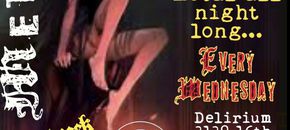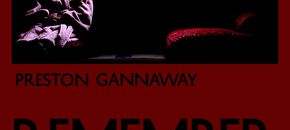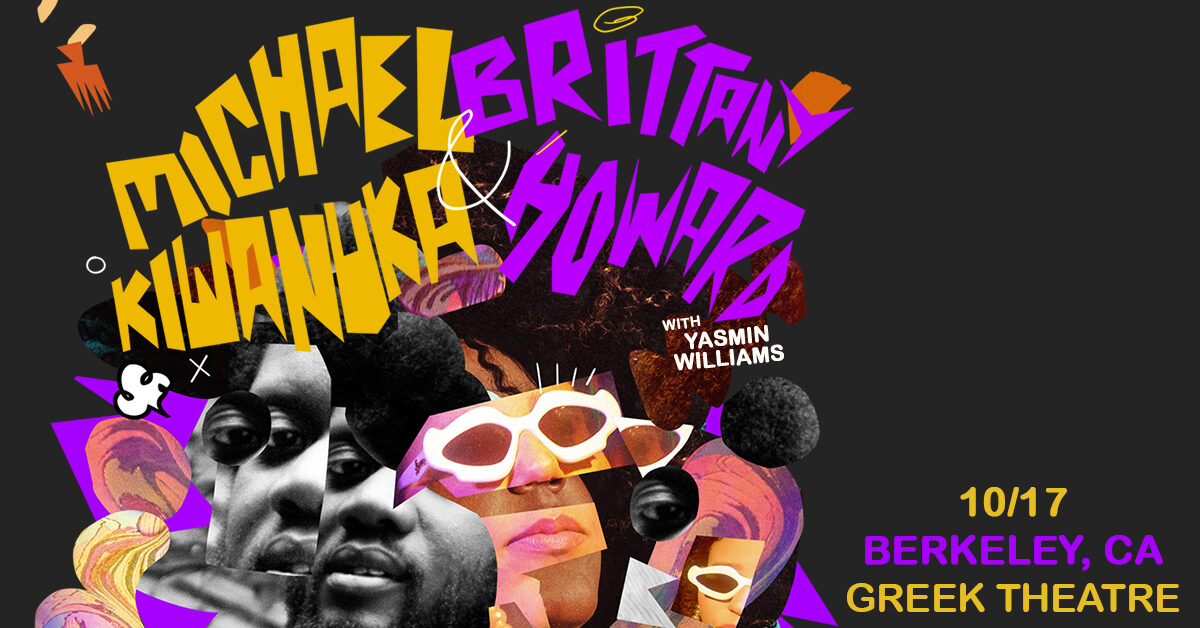Q&A: Berkeley’s Minna Choi of Magik*Magik Orchestra on Humble Beginnings to Swedish American

It’s not every day that you meet someone who has created and leads their very own orchestra. Minna Choi founder of Bay Area group Magik*Magik Orchestra does just that–and she just released her first self-titled album this past October.
Choi grew up in Berkeley, went to school in New York, and returned to the Bay Area to pursue a professional music career. She is one of the West Coast’s more prolific artists for the last decade. She formed her very own orchestra to marry her two loves: orchestral music and pop songs. The size of the orchestra is dependent on the artist’s goal and has ranged from a single violinist to an 80-piece symphony and choir.
Magik*Magik Orchestra has collaborated with over 150 artists and cultural institutions on an international level almost entirely by word of mouth. Magik*Magik Orchestra has also toured with Death Cab For Cutie and recorded the scores for the films Looper and Kill The Messenger. Recently, Choi finally decided it was time to sit down and record some of her own music.
To preview their upcoming show at Swedish American Music Hall this Friday, December 2, we caught up with Choi to learn more about her upbringing, how she recruited for the orchestra, and what she enjoys most about playing in San Francisco.
Growing up in Berkeley, what type of music were you exposed to during your youth?
I was born in Berkeley and I was there until I was 12. [I also] lived to Maryland for six years and went to New York for college. I moved back to the Bay Area for grad school to study music. I’ve been here since 2007.
When and how did you decide to attend San Francisco Conservatory of Music?
I wasn’t actually thinking about coming back to San Francisco. I had all my friends in New York and I had been there eight years. I thought I would live [in NY] the rest of my life. There was one music school I got into in New York, but when I compared it to going to school in SF and [being taught by Eleanor Armer], it was an easy decision.
Eleanor Armer is a composer herself. She is amazing. She works out of Berkeley and is one of those composition teachers who doesn’t impose her compositional style onto her students at all. She is really able to diagnose and assess some of your fundamental problems as a composer but within your own style. She just wants to make you better. I was really impressed with that and learned a lot.
Where do you currently reside and what do you like most about your neighborhood?
I lived in the Mission for five years and Noe Valley for one year. Now I’m in Russian Hill. I’m living in an apartment owned by my aunt and uncle. It’s a beautiful studio in Russian Hill. They suddenly had to move back to New York because my uncle got offered a job there. My aunt convinced our building manager to let me quietly take over the lease without raising the rent.
What was your motivation for starting your own orchestra and how did you recruit the members?
For the last four of the eight years I was in New York, I was working at a recording studio called Unique Recordings. It shut down right when I left but I started out as an intern there. I eventually started getting booked as an arranger, mostly by hip-hop clients and occasionally a rock client. There was one producer who booked me a lot. He was friends with a security guard at Julliard. He would ask students to come to the studio to play arrangements together and I knew that was something I loved to do. The problem was that whenever we did sessions out there, the students who would come in didn’t seem very happy. It was kind of like pulling teeth to get string players to enjoy playing in a studio. I left New York thinking classical musicians don’t like playing anything that isn’t classical music.
It’s made clear to all the members: it’s not a classical group, so don’t join if you just want to play Beethoven. You can easily vet players to ensure they know exactly what they are getting into. As far as recruitment, I just talked to my friends.
What has been your biggest challenge in creating your self-titled album?
Writing lyrics. [laughs] That’s probably the biggest challenge at least for me. I’m a musician, first and foremost, and a lyricist/poet is toward the bottom of what I listen for, train for, and do. I’ve been writing string arrangements for bands the past eight years. I’ve written close to 800 of them. I’ve never been hired to write words for someone. I always write the music first and then go back and plug in lyrics.
I personally think words are overrated in music. I have a really awful metaphor for this. I always compare words and music in a song to plates and food in a restaurant. You need words because something needs to hold it together. No one goes to a restaurant to look at plates. You don’t listen to music because of the words. At least that’s how I’ve been listening to music the past 30 years.
I’ve grown up listening in this way. You’re constantly agonizing over every musical detail. Now I’m in a place I have to write words and that I’m proud of. It kind of felt like I was starting from scratch. What are good words? What are words that are embarrassing? I always feel like music writers care so much more about lyrics than the other musicians…you notice a pretty big gap. It was so hard for me, focusing on this other part of the music. These words have to stand on their own.
Who are some of your vocal inspirations?
My favorite singer of all-time is Björk, but there’s no way I could ever imitate her. Her voice is so unique and powerful. I think that’s the closest person I might compare to. There’s something in her voice that feels applicable to my voice.
[I’m also inspired by] St. Vincent and My Brightest Diamond. The way they sing is very precise. They sing like someone plays a musical instrument. They are very thoughtful with their pitch and they hop around a lot. They sing like they’re playing darts, hoping from one note to another with a lot of thoughtfulness, precision, and pre-planning. That’s the type of singing that’s most exciting to me. It shows a lot of architecture your melodies. It shows you’ve thought about every note and vetted every note. They’re not wasteful. That’s something I really love.
How did you form the collaboration with Bon Iver’s Rob Moose?
I’ve known Rob since 2005 or something like that. When I was in New York, I had met him. I met him right before I was applying for grad school. I was putting my pieces together for grad school and I needed a violinist. Michael Patterson, who taught at Manhattan School of Music, said I should reach out to this violinist…Rob Moose. I just cold-called him and said, ‘I was told to call you.’ He was so sweet. Unfortunately, he was busy at the time. He recommended some other people and somehow we ended up meeting again.
When he started playing orchestra, he told me you should get this book by Samuel Adder. We were falling in love with orchestration at the same time. I stayed in touch with him throughout the years. Sometimes I reach out when I need help. I asked if he wanted to write a couple cues. We’ve kept in touch for the past 10 years. I’m a huge admirer of what he does and he’s an incredible arranger. He did me a total favor. He’s a huge wine connoisseur. So he said all you have to do is buy me this bottle of wine from this particular year. A french white wine. He had already looked up where to buy it in San Francisco. It wasn’t expensive (60 bucks).
What is our favorite memory from recently playing Pop-Up Magazine’s show: The Golden State Record at the Greek Theatre?
Oh my gosh. That question is so easy to answer. Anyone who was at that show, it would be the same highlight moment: Tim Blevins, a homeless opera singer from BART station. Tim Hussin made a documentary about [Blevins] always singing in the subway. He thought his story was really compelling. [Blevins] is in his fifties now, but when he was in his twenties he got his masters from Julliard and did Broadway. He was very successful, but one day got injured in stage combat during one of his performances, got hooked on painkillers, and ended up homeless on the streets of San Francisco singing for money.
They showed clips of the documentary at the Greek. He still has dreams of being a famous opera singer. People are already pretty moved by watching the documentary and then [Blevins] comes out onto the stage and does a rendition of the impossible dream and completely brings the house down. A standing ovation by everyone, including all the musicians on the stage. That was probably one of the most musically touching and powerful moments of my whole life. I remember that in rehearsals, every time we ran that with him, you could hear a pin drop in the rehearsal hall. Some people started crying. It was a really incredible moment of hope and redemption.
What do you enjoy most about playing in San Francisco?
My whole music career started in SF. I have nothing to really compare it to. One thing that I’ve always believed is that with Magik*Magik Orchestra couldn’t have started in any other city. The general personality of musicians you find here is very open to new ideas…ones that may or may not work. I think in other cities it’s not quite like that.
When I moved out here I wanted to start Magic Magic, I had never been in an orchestra. I never played string or violin. That could have stopped a lot of people from joining but people are a little more understanding here and willing to give others a chance. If people think your idea is good, they’re willing to give you a shot and try to make it real. Back then, everyone I met, they encouraged me start this group and were willing to help out in any way they could.
To learn more about Magik*Magik Orchestra, check out their Facebook page, Twitter handle, and YouTube account, and official website.





